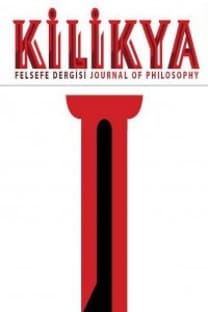The Last Condition of Plato’s Republic: The Philosopher-King
The Last Condition of Plato’s Republic: The Philosopher-King
In Plato's dialogue of the Republic, politics is a concept questioned in the context of one of the most ancient problems of philosophy, that is, the relationship between theory and practice, and formulated as a paradox. Plato finds a solution to the paradox by establishing the city-state proximate to his theory and to put forward three conditions. The last of those conditions, as Plato calls it the greatest wave of paradox in his own terms, that the rulers must be philosopher-kings, contains many clues about Plato's conception of politics. The aim of this study is to examine the implications of the philosopher-king condition in Plato's political philosophy. To this end, first, it is demonstrated that the political meaning of the philosopher's exit from the cave on the way to becoming ruler is apolitical. Secondly, it will be shown how the political activity of the philosopher, contrary to the nature of politics and in a way that excludes others, is reduced to both ascetic and cognitive activity.
Keywords:
Plato, Republic, Philosopher-King, Paradox Justice,
___
- Arendt, H. (1998). Human Condition. Chicago: The University of Chicago Press.
- Avcı, N. (2018). Beauty and Art in Plato, In Research and Development on Social Sciences, (pp. 239-247), Krakow: Jagiellonian University Institute of Public Affairs.
- Guthrie, W.K.C. (1975). A History of Greek Philosophy Volume IV, Plato: The Man and His Dialogues: Earlier Period. Great Britain: Cambridge University Press.
- Hadot, P. (2002). What Is Ancient Philosophy? (M. Chase, Trans.). New York: Harvard University Press.
- Kraut, R. (1992). The Defense of Justice in Plato’s Republic. In R. Kraut (Ed.), The Cambridge Companion to Plato (pp. 311-338). New York: Cambridge University Press.
- Morrison, D. R. (2007). The Utopian Character of Plato’s Ideal City. In G. R. F. Ferrari (Ed.), The Cambridge Companion to Plato Republic (pp. 232-256). New York: Cambridge University Press.
- Murteza, E. Y. (2013). Platon’un Devlet’inde Dikaiosynē Kavramının Kullanılışı. In Felsefi Düşün, 1, pp. 181-195.
- Nussbaum, M. C. (2001). The Fragility of Goodness Luck and Ethics in Greek Tragedy and Philosophy. New York: Cambridge University Press.
- Shorey, P. (1937). The Republic, Vol. I: Books 1–5 (Loeb Classical Library No. 237). Harvard University Press; William Heinemann Ltd.
- Shorey, P. (1942). The Republic, Vol. II: Books 6–10 (Loeb Classical Library No. 242). Harvard University Press; William Heinemann Ltd.
- Plato. (1992). Republic. (G.M.A. Grube, Trans.). New York: Hackett Publishing Company.
- White, N. P. (1979). A Companion to Plato’s Republic. New York: Hackett Publishing Company.
- Yayın Aralığı: Yılda 2 Sayı
- Başlangıç: 2014
- Yayıncı: Eray Yağanak
Sayıdaki Diğer Makaleler
Felsefi Eleştirinin Temellendirilmesi Üzerine
Wittgenstein’da Etik ve Estetiğin Bakış Açısı Etkisi Üzerine
Etkin Diğerkâmlık Düşüncesi ve Pratiğini Spinoza ile Birlikte Düşünmek
Görüngüsel Muhafazakarlık: Genel Bakış ve Bazı Yaygın Eleştirilere Alternatif Yanıtlar
Tractatus Logico-Philosophicus’ta Saçmanın İşlevi
Heidegger Düşüncesinde Ahlakın Olanağı
Epistemik Sorumluluk ve Siyasal Alanda Anlaşmazlıklar
Taklit Oyununun Yakın Bir Okuması
Hartmut Rosa’nın Düşüncesinde Rezonans, Yabancılaşma, Yurttaşlık
